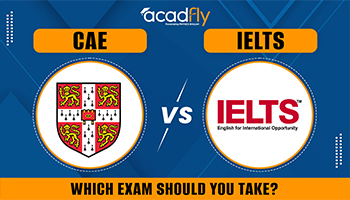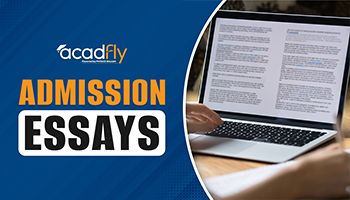

Pursuing a computer science degree in Australia offers a chance to study in world-renowned institutions and gain cutting-edge skills. The computer science degree requirements in Australia vary depending on the level of study, such as undergraduate or master's programs. Typically, students must meet academic qualifications, demonstrate English language proficiency, and fulfill any additional prerequisites set by individual universities. Understanding these requirements is crucial to ensuring eligibility and a smooth application process for international students aiming to pursue computer science studies in Australia.
Eligibility for Computer Science Masters in Australia
Before applying for a Master's in Computer Science in Australia, it's essential to understand the eligibility requirements. Universities typically have specific academic, language, and professional criteria that applicants must meet. These criteria ensure that students are well-prepared for advanced studies in computer science.
Bachelor’s Degree in Relevant Field
Applicants must have a bachelor’s degree in computer science, IT, or a related field. This degree should be from a recognized university, and a strong academic performance, often with a minimum GPA, is required.
Proof of English Language Proficiency
International students need to demonstrate proficiency in English, typically through tests like IELTS or TOEFL. Universities set minimum scores that students must meet to qualify for admission.
Work Experience (For Some Programs)
Some universities may require applicants to have relevant work experience, especially for professional master's programs. This helps ensure students have practical knowledge in addition to academic qualifications.
Strong Academic Background
A strong academic background in core subjects such as programming, mathematics, and algorithms is often required. Some universities may also look for specific coursework completed during undergraduate studies.
Letters of Recommendation and Statement of Purpose
Many programs require letters of recommendation from academic or professional references, along with a statement of purpose outlining your career goals and reasons for pursuing a master's in computer science.
IELTS Requirements for Computer Science in Australia
Understanding the IELTS requirements is crucial for international students aspiring to study computer science in Australia. The scores required may vary by university and program, but they serve as a key criterion for admission. Here are the essential points regarding the IELTS requirements for computer science programs.
Minimum Overall Score
Most Australian universities require international students to achieve a minimum overall IELTS score of 6.5 or 7.0 for admission into computer science programs. This score indicates that students possess a good command of the English language, which is essential for understanding complex technical materials and participating in discussions.
A higher score may also enhance a student's application, making them more competitive among other candidates. Therefore, students should prepare thoroughly to achieve the desired score.
Subtest Score Requirements
In addition to the overall score, universities often set minimum score requirements for each IELTS subtest: listening, reading, writing, and speaking. Typically, students must score at least 6.0 in each of these sections to demonstrate balanced proficiency in all aspects of the language.
This ensures that students can effectively communicate in various contexts, such as lectures, group discussions, and written assignments. Meeting the subtest requirements is crucial, as failing to do so may disqualify an applicant, regardless of the overall score.
Validity of Test Scores
IELTS scores are usually valid for two years from the date of the test. Students must ensure that their test results are current and meet the admission deadlines of the universities to which they are applying.
Universities often check the validity of the scores during the application process, so students should plan accordingly to take the test on time. If the scores expire before the application is submitted, students will need to retake the test to fulfill this requirement.
Exemptions for English-speaking Countries
Students from countries where English is the primary language, such as the United States, Canada, the United Kingdom, and New Zealand, may be exempt from IELTS requirements. However, these students need to confirm exemption criteria with the specific university, as policies may vary.
Some institutions may still require proof of English proficiency through other means, such as a high school diploma from an English-speaking institution. Understanding these requirements early on can help streamline the application process.
Alternative English Proficiency Tests
Some universities in Australia accept alternative English proficiency tests, such as the TOEFL (Test of English as a Foreign Language) or PTE Academic (Pearson Test of English). Students should check with the specific university to see if these alternatives are accepted and what the required scores are for each test.
Preparing for an alternative test may provide students with more flexibility, especially if they find one test format easier to manage than another. However, it is crucial to meet the specific requirements set by each institution to ensure successful admission.
Best Computer Science Universities in Australia
When considering studying Computer Science in Australia, it's essential to choose a reputable university that offers strong academic programs and industry connections. The following table provides a summary of some of the top institutions known for their excellence in Computer Science education. These universities not only provide a robust curriculum but also opportunities for research and practical experience.
|
University Name |
Location |
Notable Programs |
|
University of Melbourne |
Melbourne, Victoria |
Master of Computer Science, Bachelor of Science (Computer Science) |
|
Australian National University |
Canberra, ACT |
Master of Computing, Bachelor of Information Technology |
|
University of Sydney |
Sydney, New South Wales |
Master of Data Science, Bachelor of Computer Science |
|
Monash University |
Melbourne, Victoria |
Bachelor of Computer Science, Master of Information Technology |
|
University of Queensland |
Brisbane, Queensland |
Bachelor of Computer Science, Master of Data Science |
|
University of New South Wales |
Sydney, New South Wales |
Bachelor of Computer Science, Master of Cyber Security |
|
RMIT University |
Melbourne, Victoria |
Bachelor of Computer Science, Master of Computer Science |
|
Deakin University |
Geelong, Victoria |
Bachelor of Information Technology, Master of Information Systems |
|
University of Technology Sydney |
Sydney, New South Wales |
Bachelor of Computer Science, Master of IT Management |
|
Swinburne University of Technology |
Melbourne, Victoria |
Bachelor of Computer Science, Master of Information Systems |
Scholarships for Computer Science Students in Australia
When pursuing a degree in Computer Science in Australia, several scholarships can help alleviate the financial burden. These scholarships are available to both domestic and international students and vary in eligibility criteria and funding amounts. The following table highlights some prominent scholarships for Computer Science students, including their details and eligibility requirements.
|
Scholarship Name |
Offered By |
Eligibility |
|
Australian Government Research Training Program |
Australian Government |
International students pursuing research degrees |
|
Endeavour Postgraduate Scholarship |
Australian Government |
Postgraduate students for studies in any field |
|
University of Melbourne Graduate Scholarships |
University of Melbourne |
Domestic and international students in various fields |
|
ANU College of Engineering and Computer Science Scholarships |
Australian National University |
Students enrolled in Engineering and Computer Science |
|
UQ International Scholarships |
University of Queensland |
International students for undergraduate or postgraduate courses |
|
Macquarie University International Scholarships |
Macquarie University |
International students from all disciplines |
|
Deakin University Scholarships |
Deakin University |
Various scholarships available for domestic and international students |
|
Monash International Merit Scholarship |
Monash University |
High-achieving international students |
|
Swinburne University Scholarships |
Swinburne University |
Various scholarships for domestic and international students |
|
RMIT University Scholarships |
RMIT University |
Scholarships available for undergraduate and postgraduate students |
Frequently Asked Questions
1.What are the general eligibility criteria for studying Computer Science in Australia?
2.What is the IELTS requirement for Computer Science programs in Australia?
3.Do I need to take the GRE for Computer Science programs in Australia?
4.Which are the best universities for Computer Science in Australia?
5.Are there scholarships available for international students in Computer Science?









